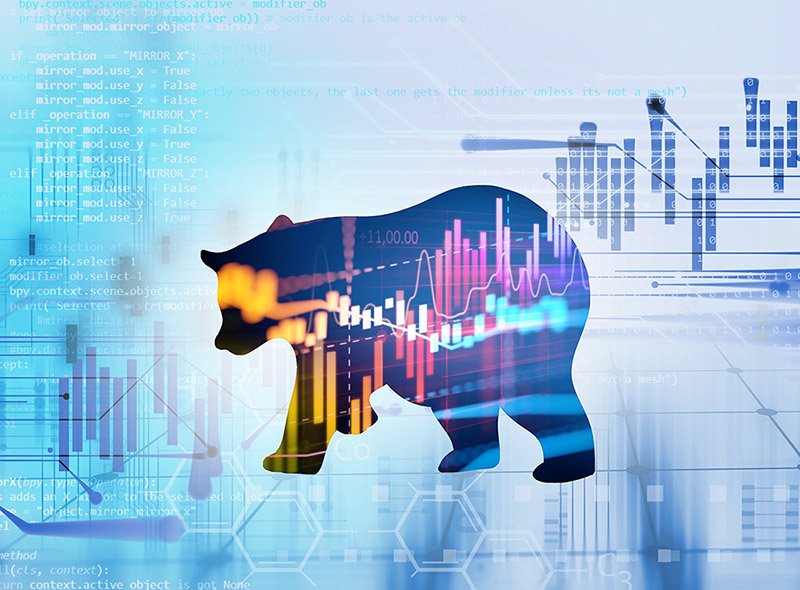嘉信理財(cái)借助AI判斷投資者情緒

|
下次股市大跌時(shí),把手機(jī)放在旁邊,因?yàn)槟愕慕?jīng)紀(jì)公司可能會(huì)打電話來(lái),給你一些建議。
如果你是嘉信理財(cái)?shù)淖晕覍?dǎo)向投資者,那么歡迎加入“看空項(xiàng)目”。總部設(shè)在舊金山的嘉信理財(cái)推出了這個(gè)半人工智能、半人工操作的項(xiàng)目,旨在防止投資者做出愚蠢的決定。
我們來(lái)看看這個(gè)項(xiàng)目是怎么運(yùn)作的:由人工智能根據(jù)數(shù)以百計(jì)的行為或人口統(tǒng)計(jì)學(xué)屬性來(lái)掃描客戶群,如果算法計(jì)算出你有60%的可能在波動(dòng)性很高時(shí)賣出股票,而市場(chǎng)正在劇烈震蕩,那么你就會(huì)接到一個(gè)電話。
“研究表明,在熊市中賣出股票的投資者在隨后幾年里獲得的平均回報(bào)較低。” 嘉信理財(cái)?shù)耐顿Y服務(wù)執(zhí)行副總裁特里·卡爾森說(shuō)道,“因此,我們使用預(yù)測(cè)性建模來(lái)確定哪些客戶可能容易受到市場(chǎng)情緒升溫和噪音增加的影響。”
但這個(gè)項(xiàng)目不是要讓你去做些什么,而是讓你什么都別做。
舉例來(lái)說(shuō),在2009年春季的上一次金融大動(dòng)蕩中,如果有人驚慌失措賣掉了所有股票,轉(zhuǎn)而持有現(xiàn)金。這在當(dāng)時(shí)算不上瘋狂,因?yàn)檎麄€(gè)金融體系似乎正在崩潰。然而最終這將會(huì)變成一個(gè)災(zāi)難性的決定。
但如果當(dāng)時(shí)他并未選擇退出市場(chǎng),甚至買了更多的股票,那就很可能會(huì)迎來(lái)好日子。自從股市觸底以來(lái),標(biāo)準(zhǔn)普爾500指數(shù)的反彈已經(jīng)超過(guò)250%。
這就是嘉信理財(cái)想要傳遞的信息。
因此,在波動(dòng)性很高或熊市轉(zhuǎn)折的時(shí)期,嘉信理財(cái)就會(huì)派人來(lái)給你講這件事情。
而面臨風(fēng)險(xiǎn)做出大動(dòng)作的投資者通常是指在原投資組合中持有超過(guò)75%的股票,隨后降至25%以下的人。嘉信理財(cái)表示,在公司的客戶中大約有50萬(wàn)名此類投資者。與大多數(shù)客戶相比,這類客戶的高風(fēng)險(xiǎn)資產(chǎn)配置比例較高,而且交易頻繁。
“這類客戶可能會(huì)因?yàn)楦械骄o張而說(shuō):‘我要退出市場(chǎng)。’” 嘉信理財(cái)負(fù)責(zé)咨詢和交易服務(wù)的高級(jí)副總裁巴里·梅澤爾說(shuō)道,“當(dāng)客戶有這樣的情緒時(shí),往往會(huì)做出糟糕的決定。”
當(dāng)然,該項(xiàng)目不能保證投資者會(huì)作何反應(yīng),也不能保證結(jié)果如何。梅澤爾表示,有些客戶可能會(huì)聽取并領(lǐng)會(huì)這種建議,但有些可能不置可否,有些甚至可能會(huì)懷疑打電話的原因,并抱怨道:“他們給我提供指導(dǎo)一定有自己的目的。”
但該項(xiàng)目從2018年12月開始試行,到目前為止其效果一直都令人鼓舞。與沒有接到這種電話的對(duì)照組相比,收到來(lái)電的投資者撤出市場(chǎng)的資產(chǎn)減少了27%。而這些投資者的“客戶促進(jìn)者得分”,實(shí)際上就是他們的總體客戶滿意度,也有了明顯的提高。
對(duì)金融公司來(lái)說(shuō),這種應(yīng)用型人工智能可能只是一個(gè)開始。卡爾森表示,另一個(gè)可能發(fā)揮作用的例子是物理遷移,這在人的一生中平均會(huì)發(fā)生11次,可能會(huì)引發(fā)各種重大的財(cái)務(wù)事件,比如退休延期、新的保險(xiǎn)責(zé)任范圍和短期現(xiàn)金需求等。因此,如果人工智了解到你可能會(huì)搬到其他地方,那么嘉信理財(cái)就可以迅速采取行動(dòng)。
至于“看空項(xiàng)目”,卡爾森將其比作幫助你為大型比賽進(jìn)行訓(xùn)練的跑步應(yīng)用。“基于速度和心率等數(shù)據(jù),跑步應(yīng)用能夠幫助測(cè)量和預(yù)測(cè)你是否做好了準(zhǔn)備。”卡爾森說(shuō)道,她自己就是一名參加過(guò)21次馬拉松的運(yùn)動(dòng)員。“如果你還沒有準(zhǔn)備好,那就找出哪些地方需要重新調(diào)整。”
如果想要順利跑到退休的終點(diǎn)線,又有誰(shuí)不需要一點(diǎn)幫助呢?(財(cái)富中文網(wǎng)) 譯者:艾倫 審校:夏林 |
The next time the stock market tanks, keep your phone handy—it might be your brokerage on the line with a little advice.
If you’re a self-directed investor with Charles Schwab & Co., anyways. Welcome to “Project Bear”: The San Francisco-based brokerage’s part-artificial intelligence, part-human program to keep investors from making dumb decisions.
Here’s how it works: AI scans its client base for hundreds of behavioral or demographic attributes. If the algorithm figures that you have a 60% of greater likelihood of selling in times of high volatility, and the market is going wild—well, you’re getting a call.
“All the research shows research shows that investors who sell in bear markets have lower average returns in following years,” says Terri Kallsen, Schwab’s executive VP of investor services. “So we use predictive modeling to identify which clients might be vulnerable to increased emotion and noise in the markets.”
But the point isn’t to get you to do something, it’s usually to get you to do nothing.
Take the example of someone who panicked during the last great financial upheaval, back in the spring of 2009. If you sold everything and went to cash—not that crazy at the time, since the whole financial system seemed like it was melting down— that decision would turn out to be a catastrophic one.
Whereas if you stayed in the market, or maybe even bought more, then you very well may be set for life. Since the market bottom, the S&P 500 has rebounded by more than 250%.
That’s the kind of information that Schwab wants to impart.
So in periods of high volatility, or a bear-market turn, someone will be dispatched to talk you through it.
Schwab says it has identified around 500,000 of its investors who were at risk of making a big move, which they define as someone going from over 75% equities in their portfolio to below 25%. Those clients have higher-risk allocations than most, and are frequent traders.
“Those are the clients who might get nervous and say, ‘I’m out,’ ” says Barry Metzger, Schwab’s senior VP for advice and trading services. “When emotion comes into play like that, clients often make poor decisions.”
The program is no guarantee of investor response or outcomes, of course. Some clients may listen to and appreciate the advice, but some may be neutral—and some may even be skeptical of why Schwab is calling, and complain “they are self-directed for a reason,” Metzger says.
But the results so far—the program was piloted in December of 2018—have been encouraging. Investors who received an outreach withdrew 27% less in assets, compared to a control group who didn’t get a call. And the ‘Client Promoter Score’ of those investors—essentially, their overall customer satisfaction—also got a noticeable bump.
This kind of applied A.I. may be just the beginning for financial firms. Another example of where it might come into play, says Kallsen: A physical move, which happens on average 11 times over the course of one’s life. That can trigger all sorts of major financial events such as retirement rollovers, new insurance coverages, and short-term cash requirements. So if A.I. gets wind that you might be on the move, the firm can spring into action.
As for Project Bear, Kallsen likens it to a running app that helps you train for big races. “Based on data like pace and heart rate, a running app will help measure and predict whether you are ready,” says Kallsen, herself a 21-time marathoner. “If you’re not, then you can figure out where to readjust.”
And who doesn’t need a little help getting to the finish line of retirement. |













